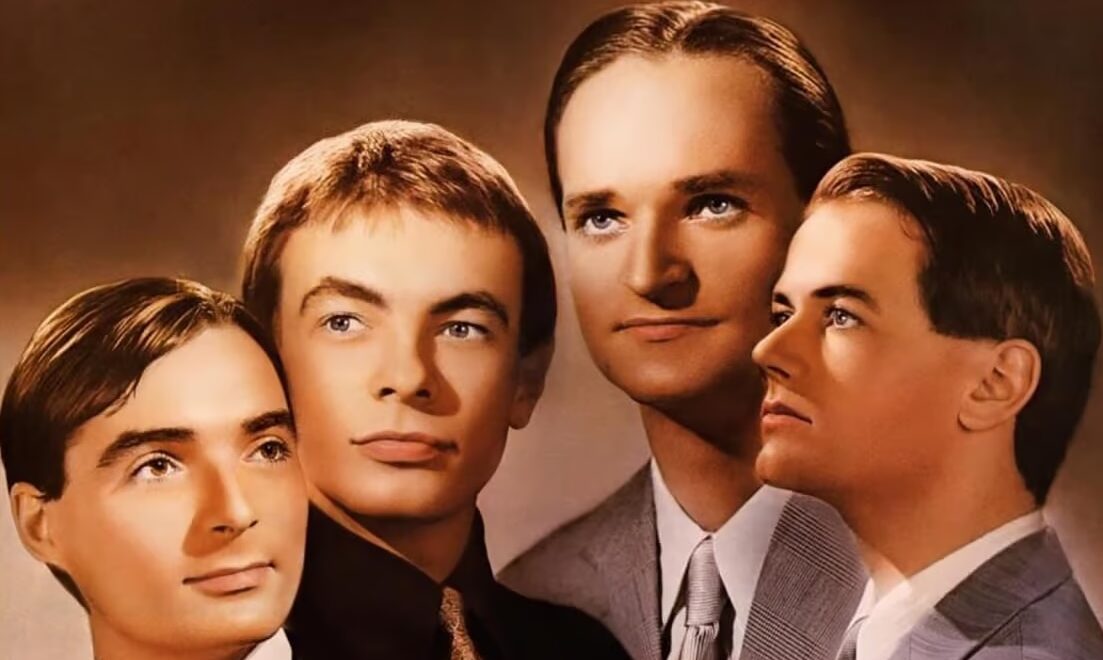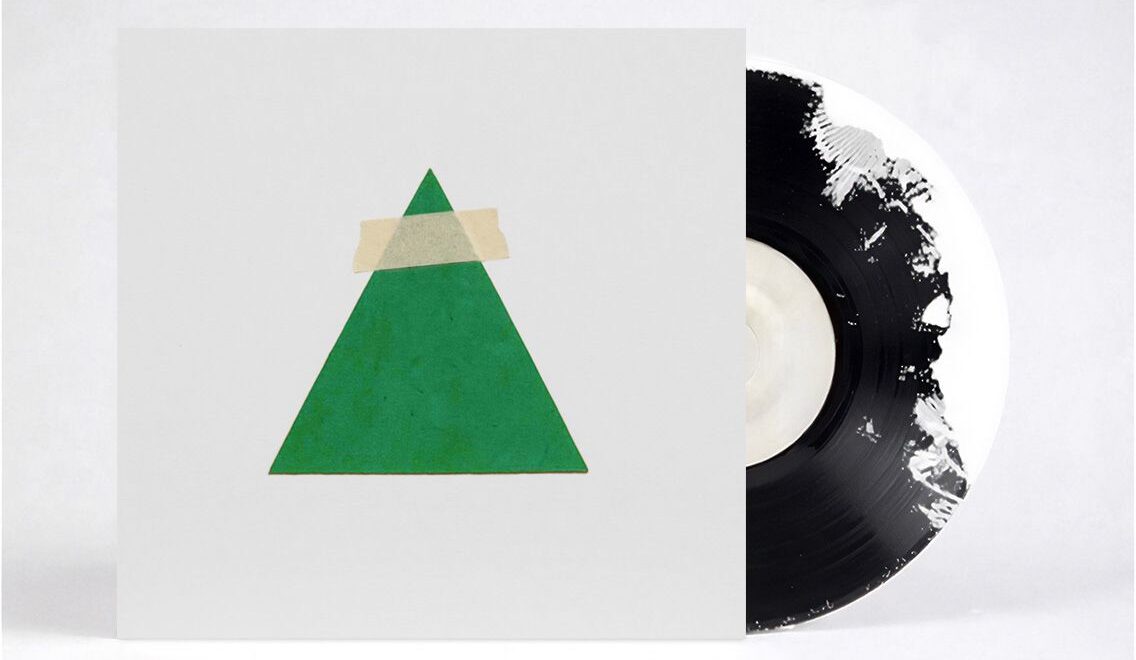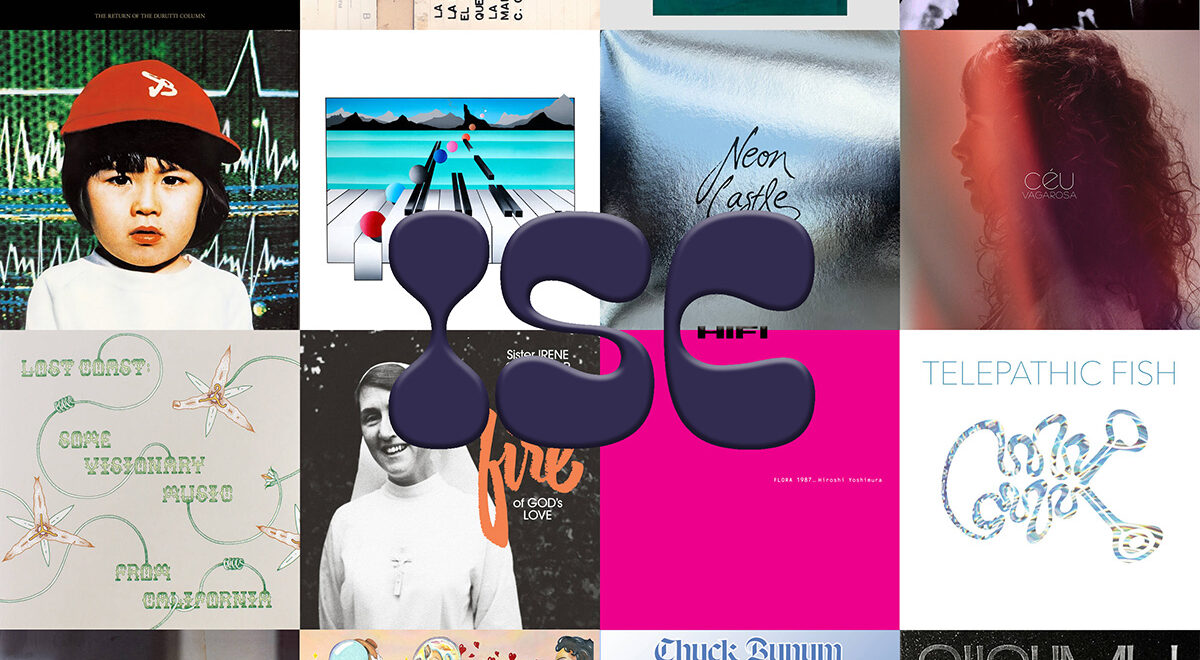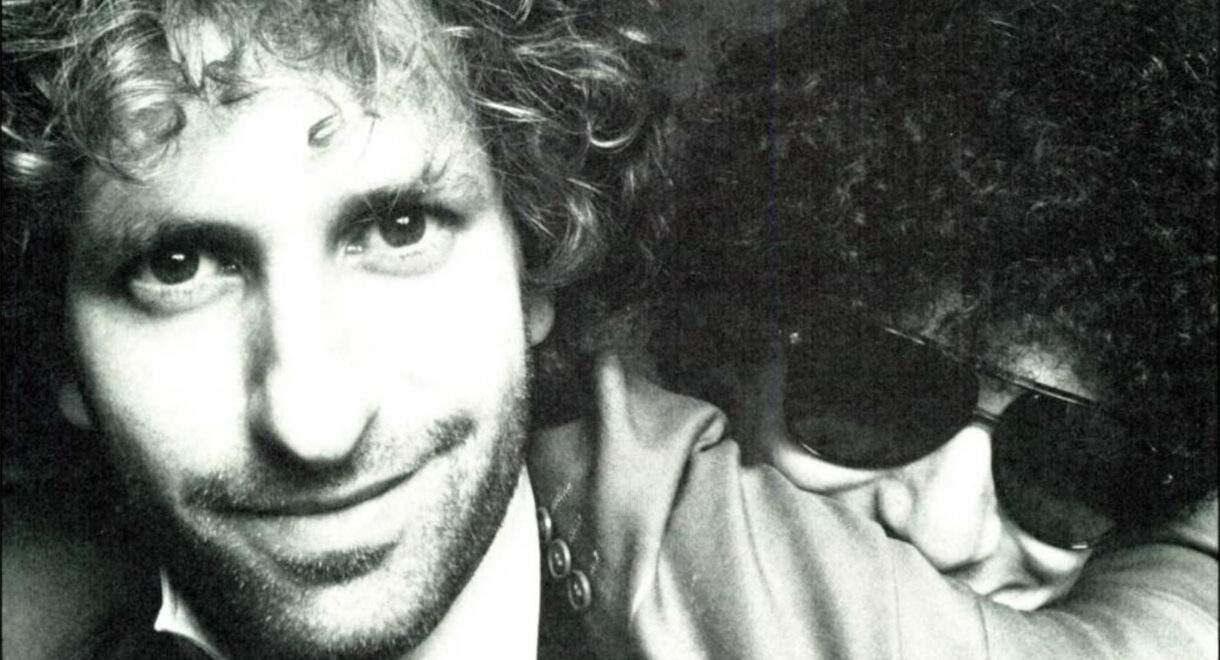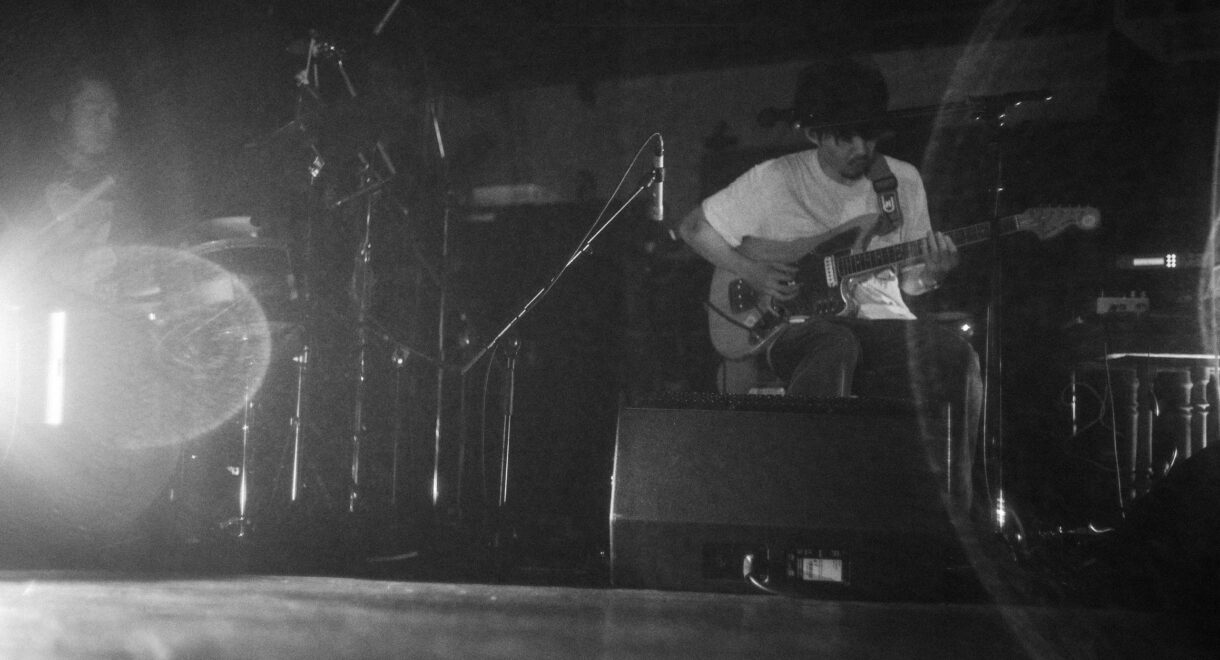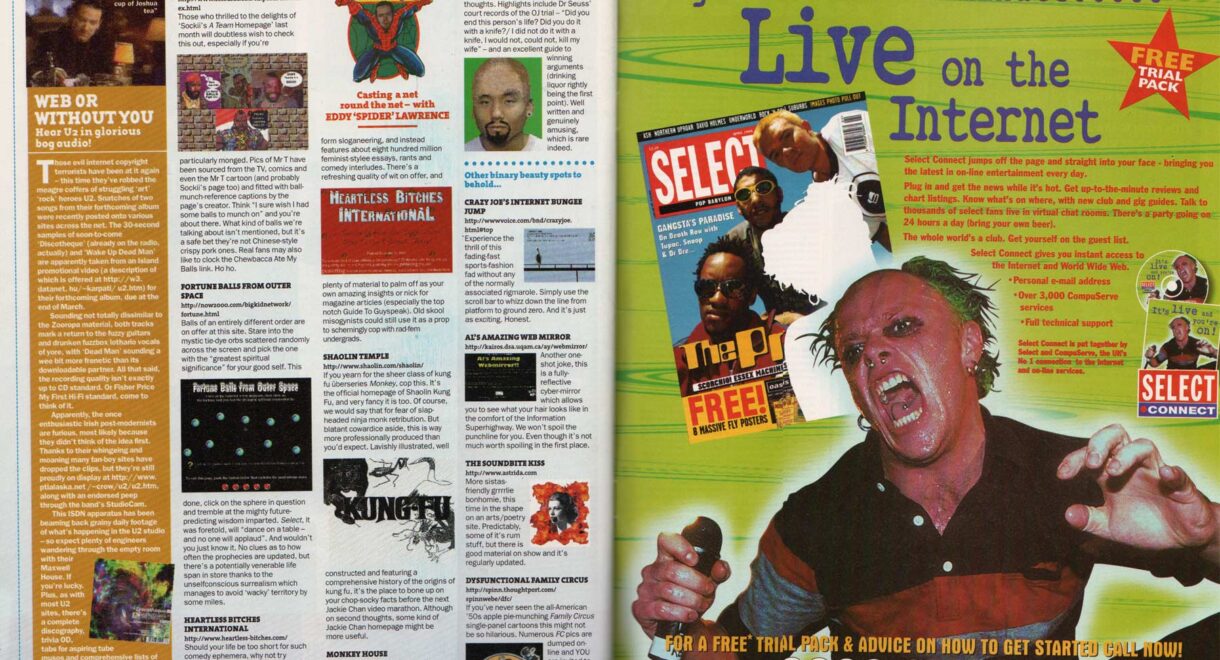Read a very long, very fascinating interview with Ralf Hutter and Florian Schneider from Synapse Magazine, 1976. In 1976, Kraftwerk sat at a strange, newly powerful crossroads. Autobahn […]
Johnny’s Chuckwagon: A Country and Western Fantasy in Kyoto (1985)

Ed Shorer speaks to the man behind Johnny’s Chuckwagon, a Country & Western themed kissaten in Kyoto (1985).
If you didn’t know any better you would swear you were on the corner of 10th and Main, in Laramie, Wyoming. Close, but not quite. The weathered wooden building with the red “Early Times” advertisement painted on the side is actually on the corner of 10th and Highway 24, directly south of Kyoto Station, and you’re about to enter the greatest country and Western fantasy in Japan, Johnny’s Chuckwagon. And now heeeerre’s Johnny…
KALEIDOSCOPE KYOTO: When did you first get interested in things country and western?
JOHNNY: About the time I was in second grade. A long time ago. There was something I always liked about it.
KK: Which musicians do you especially like?
JOHNNY: Of course Hank Williams, but there are so many more.
KK: Did this shop just happen, or did you plan it for a long time?
JOHNNY: I planned it from my childhood (laughing). Definitely, but I didn’t open until 1967.
KK: Where did all this stuff come from?
JOHNNY: Most was brought over from the U.S., but some from Japan. Like that painting. I had a friend paint it just like it’s an Old West scene in America. There’s really not much stuff like this available in Japan.
KK: What are all these horseshoes on the wall?
JOHNNY: They’re from race horses from Yodo Race Track. Famous ones (laughing). Young people don’t know them but older folks do. There’s a saddle and stirrups that belonged to Fukunaga Yoichi, the famous jockey. Pretty rare item.
KK: You’ve obviously been to America…
JOHNNY: Yeah, but only four times. The longest trip was one month.
KK: What do Americans who you meet in the U.S. think about you?
JOHNNY: Since I don’t speak much English most of them don’t know about me. Those who come here are very surprised (laughs).
KK: Have you been to similar shops in the states?
JOHNNY: Oh sure. My friends have taken me to shops in Arizona, Las Vegas, and Los Angeles – The Palomino Club.

KK: What’s the biggest difference between your shop and their’s?
JOHNNY: Try as we might, we can’t do things 100% American style. I try to have a strictly American style shop. That’s why I only serve bourbon whiskey, no scotch. Japanese like scotch though. Americans drink and drive all over. We can’t do that.
KK: What’s on your menu that is special?
JOHNNY: We have spare ribs with barbecue sauce for 1200 yen. Chili corndogs for 700 yen. Cinnamon donuts for 150 yen. Sometimes we have pork and beans with Texas toast. That’s 600 yen.
KK: Are your customers all into Country and Western?
JOHNNY: Oh no. Only on Saturday. They come from all over wearing cowboy hats and boots. The rest of the week just my friends and locals come. They don’t care what kind of music I play.
KK: Who taught you Western-style leather tooling?
JOHNNY: When I was 20 my brother lived in New York working for Toyota. He sent me pamphlets and books, and I taught myself.
KK: And now you own a Western-style leather tooling school here. How many students do you have?
JOHNNY: Right now, about 10. We meet on Wednesdays.
KK: What kind of people are they?
JOHNNY: They’re all leather-craft teachers. They come from Kyoto, Nara, Osaka, even Tokyo. I can’t teach beginners. The levels are too far apart.
KK: What are your current favorite possessions?
JOHNNY: Probably these rattlesnake hatbands from Arizona.
KK: They still have their heads.
JOHNNY: Yeah, I like snakes for some reason (laughing). I go snake-catching every year. Pit vipers (mamushi) usually. (laughing).
KK: For their skins?
JOHNNY: No, I eat them.
KK: What’s on this belt buckle?
JOHNNY: It’s silver with turquoise and a bear tooth. Probably from Washington.
KK: All these guns, are they real?
JOHNNY: No, they’re all plastic. My real one’s in Arizona. I belong to the All-Japan Fast Draw Club. Every two years 12 of us go to the fast draw competition in Las Vegas. I practice with the plastic ones but it puts me at a disadvantage so I go ahead of the others and practice with my real one.
KK: Do you get many visitors from abroad?
JOHNNY: Sure. I take them to the nearby Kiyomizu and Sanjusangen-do Temples. The president of Tandy, and an old Indian woman who runs a craft shop have come. Somehow or other we communicate (laughing).
KK: Are there similar shops in Kyoto?
JOHNNY: This is the oldest that is Western to the bone. There’s Honky Tonk, Moroguchi-tei, Countryside. We’re all friends. There aren’t so many country and western fans, so we have to share customers and help each other. I sell Tony Lama boots and leather jackets but I only make a 500 yen profit. It won’t work if I try to get rich from this stuff.

KK: Do you see any problem with this shop continuing?
JOHNNY: No, the owner of the land is a personal friend who’s a country and western fan, so that’s no problem. But I’m getting older… (laughing)
KK: I noticed all these signatures of country and western stars.
JOHNNY: Yeah, I collected them in Japan about 20 years ago. That’s why they’re on “shikishi.” I have Hank Snow, Doc Watson, Bill Monroe, Eddy Arnold and Johnny Cash. A friend sent that one from the Grand O’ Opry with Chet Atkins, Charlie Pride, Porter Wagner, and so on.
KK: Is that you with Jackie Chan?
JOHNNY: Yeah, in Los Angeles. I didn’t know who he was. He asked if I had a T.V., I said “No.” Did I watch movies? “Not much.” He couldn’t believe it! He said, “Let’s take a picture together and show it to people in Japan.” My daughter was upset that I didn’t get his signature.
KK: Are those real silver dollars?
JOHNNY: Yeah, all fifty of them. But they’re not so special. Fairly new. This one on my buckle is over 100 years old.
KK: All of this is truly amazing. Are Japanese country and western fans increasing or decreasing?
JOHNNY: Neither. If they really get into it, they stay forever. A horse costs more to keep up than a car, you know (laughs).
KK: Do your wife and daughter like country music?
JOHNNY: No, not at all. I teach them, but…it’s probably a good thing. If they liked it, this shop would fall apart. They’d be running off to America and spending lots of money. No, it’s not good to have the same hobby.
KK: I’ll remember that. Thank you very much for your time. I’m so happy to see this kind of thing in Japan.
JOHNNY: It’s a pleasure.
This article has been archived from the 1985 edition of Kaleidoscope Kyoto with permission from the author.
Note: Johnny’s Chuckwagon is no longer in operation, but if you’re looking for a similar experience then Honky Tonk (shown above) is still open and going strong!




